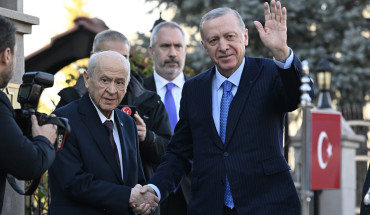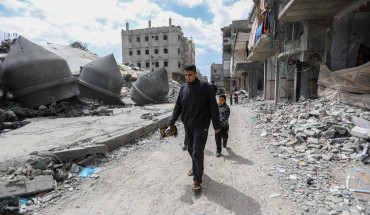On December 7, Iran’s Supreme Leader Ali Khamenei appointed Brigadier General Gholamhossein Ghaib-Parvar as the new commander of Iran’s Basij organization. Brigadier General Mohammad Reza Naqdi, former head of Basij, will direct the Islamic Revolution Guards Corps (IRGC’s) cultural and social affairs.
Two reasons are likely to be behind Ghaib-Parvar’s appointment as the head of the Basij forces. First, Khamenei has recently expressed the concern that “enemies” are using soft power tools to change Iranians’ beliefs, ideals, political views and lifestyle. “Today, infiltrating into [political] currents is more dangerous than influencing individuals,” he warned in a meeting with thousands of Basij commanders on November 25. As noted in Khamenei’s decree on Ghaib-Parvar appointment, the supreme leader has urged the new Basij chief to “create and organize” institutions within the Basij to counter “enemy infiltration.” Gharib-Parvar was a strong critic of the protest movement that rocked the Islamic Republic after the 2009 disputed elections. He once called opposition leaders Mir Hossein Mousavi, Mehdi Karroubi and Mohammad Khatami “political filth.”
Second, Ghaib-Parvar’s appointment, which Khamenei made upon a request by IRGC’s Commander Mohammad Ali Jafari, may be part of the IRGC’s effort to increase the deployment of “volunteer” militia forces to fight in Syria. On December 6, Daud Gudrazi, the head of the Student Basij Organization, said 50 Iranian student volunteers had been killed in the Syrian conflict since November. And on November 24, Major General Mohammad Hossein Bagheri, the Iranian chief of staff of the armed forces, said Basij could dispatch hundreds of thousands of fighters to Syria if supreme leader permitted.
It is also worth noting that Gharib-Parvar over the past year was the commander of the Imam Hossein Base, an IRGC unit that has played a prominent role in the Syrian war. The former head of Imam Hossein Base, Hossein Hamadani, was killed near Aleppo in October 2015.
Last month, IRGC’s elite Quds Force commander, Qassem Suleimani, said Basij forces had been instrumental in exporting Iranian revolution across the region. “Islamic movements such as Hezbollah of Lebanon and Palestinian Hamas received inspiration and spiritual aid from Basij. This is why Iran’s flag would fly in those countries,” he claimed.
The Middle East Institute (MEI) is an independent, non-partisan, non-for-profit, educational organization. It does not engage in advocacy and its scholars’ opinions are their own. MEI welcomes financial donations, but retains sole editorial control over its work and its publications reflect only the authors’ views. For a listing of MEI donors, please click here.













